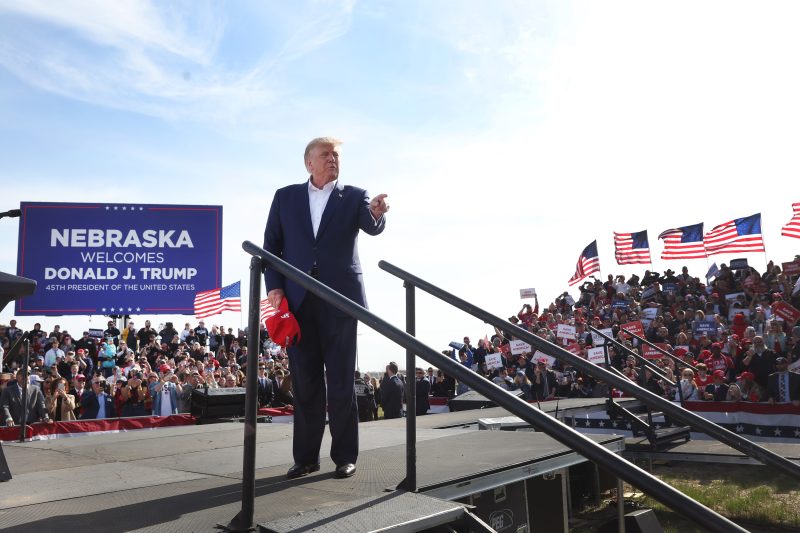In a recent turn of events, former President Donald Trump has escalated his efforts to sway Nebraska to revamp its electoral vote allocation system. The state currently operates under the congressional district method, where two electoral votes are awarded to the statewide winner and one vote to the winner in each of the state’s three congressional districts.
Trump, a vocal critic of the current system, argues that Nebraska should adopt a winner-takes-all approach, where the candidate who captures the majority of votes statewide receives all of the state’s electoral votes. This push for change comes as Trump and his supporters continue to challenge the results of the 2020 presidential election, alleging widespread voter fraud and irregularities in several key swing states.
The former president’s call for Nebraska to revise its electoral vote allocation method has sparked a heated debate among policymakers, election experts, and the public. Proponents of the winner-takes-all system argue that it would better reflect the will of the majority of Nebraska voters and simplify the electoral process. They contend that the current congressional district method can lead to a split in electoral votes, potentially undermining the state’s impact in national elections.
On the other hand, critics of Trump’s proposal raise concerns about the potential disenfranchisement of voters in districts that may lean towards one political party over another. They argue that the congressional district method allows for a more equitable distribution of electoral votes, ensuring that diverse voices and viewpoints are represented in the electoral college.
The debate over Nebraska’s electoral vote allocation system underscores the broader tensions surrounding election laws and procedures in the United States. With the country deeply divided along political lines, efforts to reform electoral systems have become increasingly contentious and polarizing.
As Trump ramps up his campaign to convince Nebraska to adopt a winner-takes-all approach, the state’s lawmakers and residents must carefully weigh the potential implications of such a change. The outcome of this debate could have far-reaching consequences not only for Nebraska but also for the future of the presidential election process in the United States. Ultimately, the decision on how to allocate electoral votes in Nebraska will shape the state’s role in future national elections and may set a precedent for other states grappling with similar questions of electoral reform.
